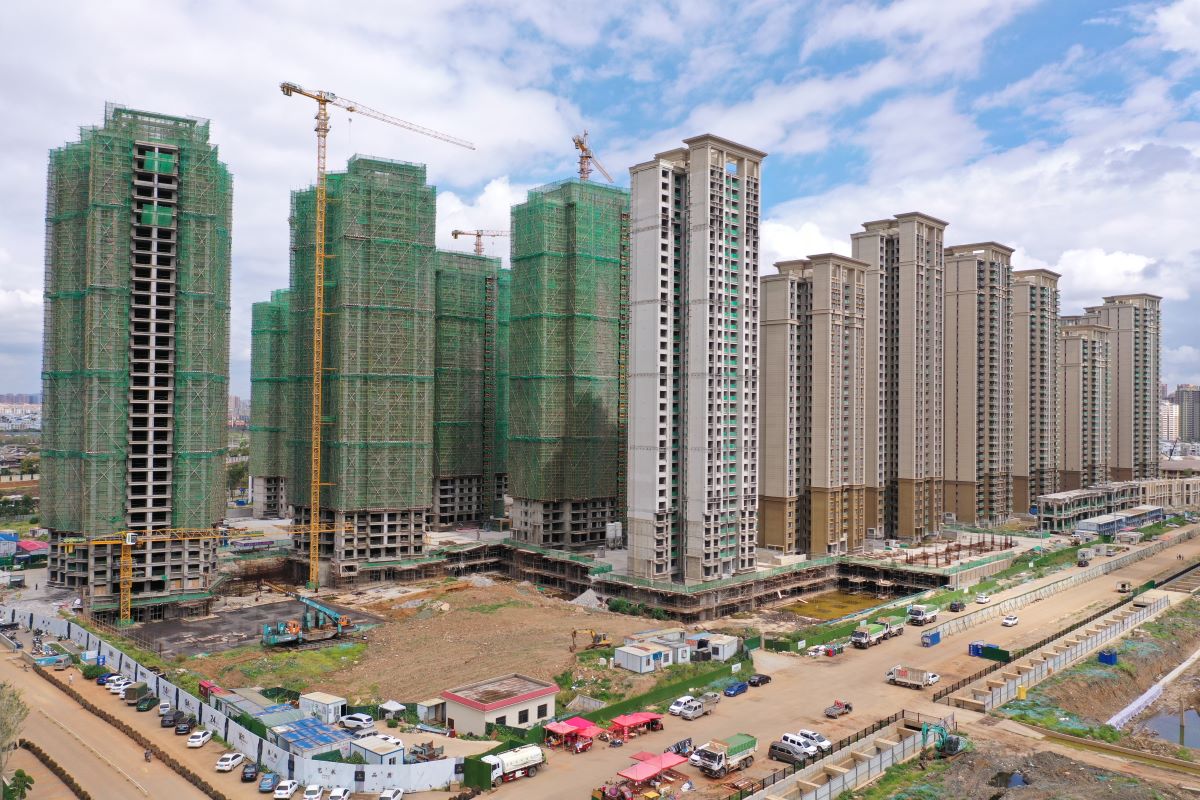Languishing under the deleveraging campaign launched by Beijing, China’s property sector is now looking up as the People’s Bank of China and the China Banking and Insurance Regulatory Commission issued a notice to financial institutions for the ‘stable and healthy development’ of the property sector.
China has announced a 16-point rescue package for the real estate market, which has been in a consolidation mode due to defaults, dropping sales, and a boycott of mortgage payments. The package has been well received by market participants, with analysts calling it a “turning point” for the property sector.
The plan comes on the heels of President Xi Jinping’s power grab through a third term in office, which many expected will not result in any change of policy.
Rescue plan for China property
The real estate sector has been a primary driver of growth for China over the past few years and accounts for a quarter of the GDP. The November 12 move by Chinese authorities is the most significant yet to stabilize the property sector, easing a clampdown that was proving to be one of the biggest drags on the world’s second-largest economy.
“It is the most aggressive policy so far by regulators to save the property market in China,” Raymond Cheng, managing director of CGS-CIMB Securities tells South China Morning Post. “Overall, we assess that these policies, if implemented, should be able to ease developers’ liquidity pressure markedly in the near term.”
The exact details of the package are as follows:
For developers and construction firms: Chinese financial institutions must treat private and public property developers equally and specifically support developers with sound corporate governance. Banks and other lenders have been directed to ensure ‘continuous and stable’ fundraising by construction companies. Any outstanding loans of developers due in the next six months can be extended for a year. Separately, trust companies have been encouraged to provide developers funding for mergers, acquisitions, rental properties, and retirement homes. If any company in the real estate sector is facing bankruptcy, asset management firms are encouraged to work on a restructuring plan. Restrictions on bank lending to developers will be eased going forward.
For homebuyers: Banks will support local governments to set down payment thresholds and mortgage rate floors. Another aspect includes supporting first-time home buyers who are moving to the city. The mortgage boycott had raised concerns about the impact on credit scores, which under the new plan will be protected. Residential projects which are facing delays will receive financial support. Homebuyers who are behind on their mortgage payments will be able to renegotiate the repayments schedule with the bank if the property purchasing contract has been amended, or if they are facing unemployment due to Covid.
Bonds and financing: Lenders will support bond issuances by quality developers, while repayment for the bonds can be extended or swapped. Lenders will also support acquisitions of property project by financially strong developers, whereas banks and asset management firms will be allowed to issue bonds dedicated to real estate project acquisitions. Financing rules for property acquisitions will be eased. Lenders in China have also been urged to ramp up support for companies in the rental property business. Banks may issue bonds for building rental properties, and real estate investment trusts (REIT) should be pushed ahead.
“The latest measures are positive for sentiment, as the government’s escalating support for the sector,” said Alec Jin, Investment Director of Asian Equities, Abrdn. “If the real estate sector deteriorates further, we would expect more support from the central government to contain any contagion risk to the broader economy.”
Desperate attempts to stabilize real estate
The rescue package includes financing measures for the cash-strapped sector. Jefferies said that the package would likely inject 1.3 tn yuan (~$184 bn) of credit into the property sector. UBS estimates this figure to be around 1 tn yuan (~$142 bn).
Data compiled by Bloomberg and research firm Use Trust showed that the property sector had at least $292 bn of onshore and offshore loans which were due by the end of 2023.
Earlier in October, China’s state-owned banks were asked to extend a 600 bn yuan financing facility to real estate developers. The Chinese government is also offering a rare tax incentive for residential purchases to boost sales. More recently, regulators in China told second-tier banks to extend a financing facility of 400 bn yuan to the property sector.
Another easing measure is China allowing property developers to access money held in pre-sale escrow accounts. ‘Quality’ property developers will get access to 30% of the pre-sale funds backed by guarantees from banks. Pre-sale proceeds are an important source of funds for property developers, especially after banks were turning them down.
The range of policy tweaking by Beijing helped left property stock and bonds in financial markets. The Hang Seng Mainland Properties Index has jumped over 20% since the November 11 close. Share prices of Country Garden, Logan Group, R&F Properties, and many others, posted double-digit gains.
“We believe the timeline of a recovery in the property sector remains highly uncertain. If implemented successfully, the banks’ increased support for the industry could reduce the asset risks from their existing property exposure. However, greater exposure to the sector could lead to a larger deterioration in asset quality and profitability if there is no recovery for a prolonged period,” said Fitch Ratings in a note.










 Australia
Australia China
China India
India Indonesia
Indonesia Japan
Japan Malaysia
Malaysia Philippines
Philippines Singapore
Singapore South Korea
South Korea Taiwan
Taiwan Thailand
Thailand Vietnam
Vietnam
 Germany
Germany Hong Kong
Hong Kong Switzerland
Switzerland Singapore
Singapore
 United Kingdom
United Kingdom








